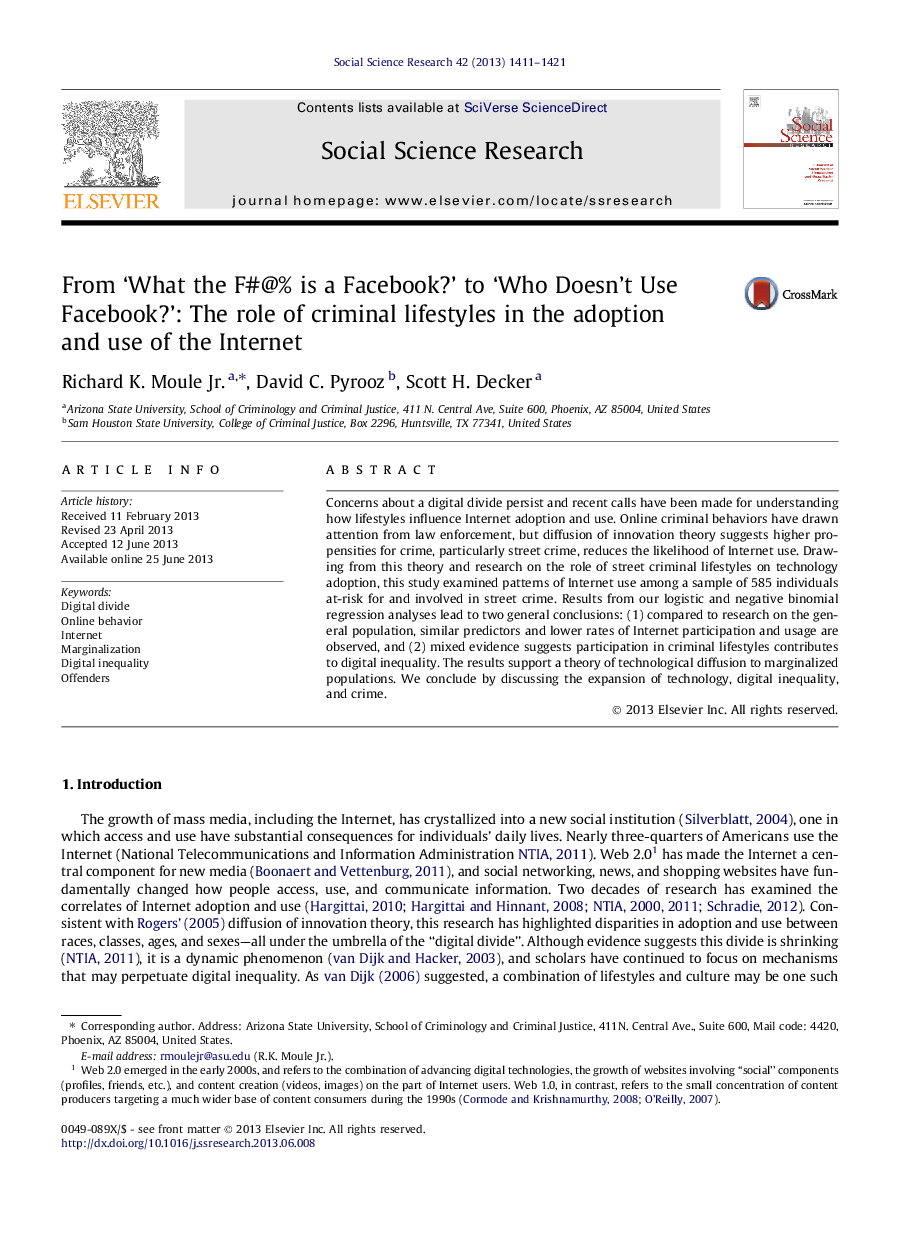| Article ID | Journal | Published Year | Pages | File Type |
|---|---|---|---|---|
| 955977 | Social Science Research | 2013 | 11 Pages |
•Active gang membership reduces the likelihood an individual uses the Internet.•Recent criminal offending increases the likelihood of Internet use.•Criminal lifestyles had no effect on social network adoption or frequency of use.
Concerns about a digital divide persist and recent calls have been made for understanding how lifestyles influence Internet adoption and use. Online criminal behaviors have drawn attention from law enforcement, but diffusion of innovation theory suggests higher propensities for crime, particularly street crime, reduces the likelihood of Internet use. Drawing from this theory and research on the role of street criminal lifestyles on technology adoption, this study examined patterns of Internet use among a sample of 585 individuals at-risk for and involved in street crime. Results from our logistic and negative binomial regression analyses lead to two general conclusions: (1) compared to research on the general population, similar predictors and lower rates of Internet participation and usage are observed, and (2) mixed evidence suggests participation in criminal lifestyles contributes to digital inequality. The results support a theory of technological diffusion to marginalized populations. We conclude by discussing the expansion of technology, digital inequality, and crime.
